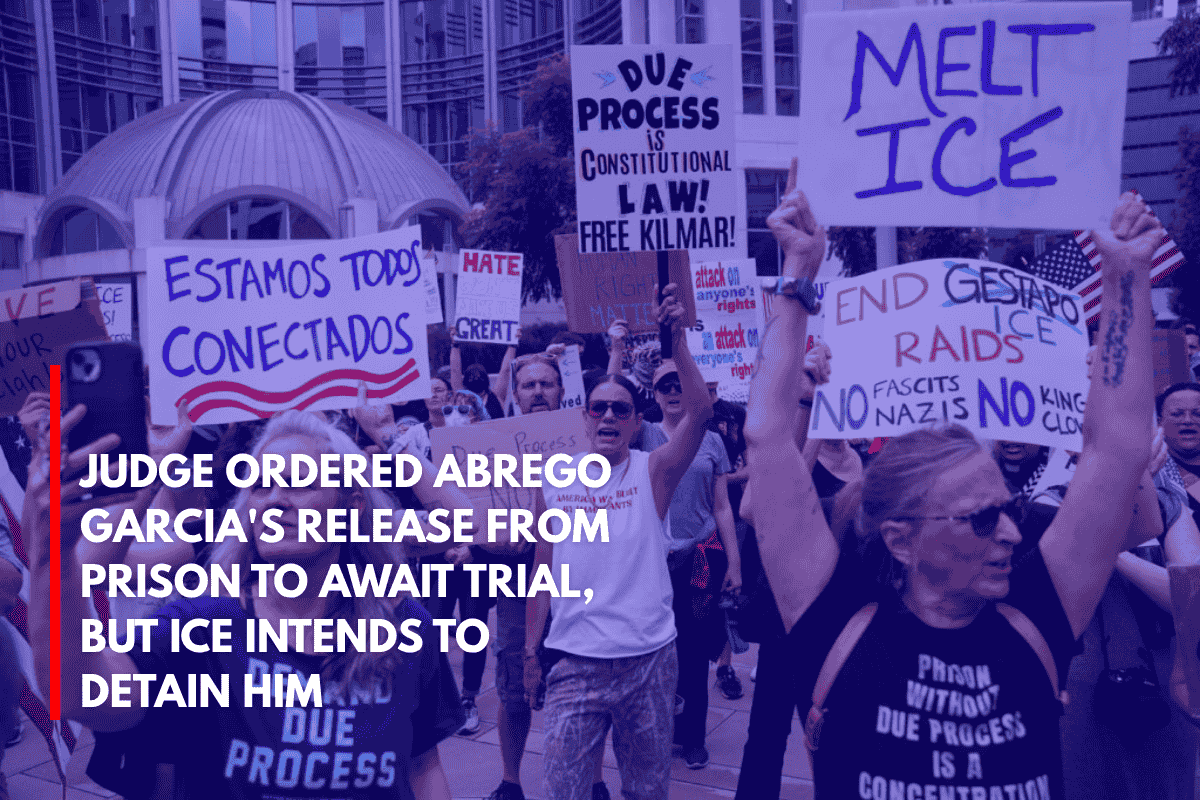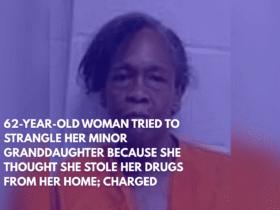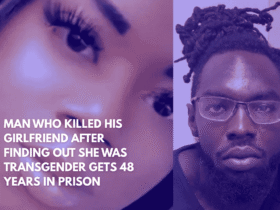A Tennessee judge on Sunday ordered the release of Kilmar Abrego Garcia, whose mistaken deportation has become a point of controversy amid President Donald Trump’s immigration crackdown.
However, while the judge’s ruling allows for his release, Abrego Garcia is not expected to be freed, as U.S. Immigration and Customs Enforcement (ICE) plans to take him into custody for possible deportation.
The Legal Situation
During a June 13 detention hearing, prosecutors argued that if Abrego Garcia were released on criminal charges, ICE would likely detain him immediately, with the possibility of deportation before his trial.
Magistrate Judge Barbara Holmes acknowledged the complexities of Abrego Garcia’s case, stating that his potential deportation by ICE could make the question of his release “more of an academic exercise.”
Nevertheless, she ruled that everyone is entitled to the presumption of innocence and to a fair determination regarding their custody status while awaiting trial.
Holmes stated that the government failed to prove that Abrego Garcia posed a flight risk, was a danger to the community, or would interfere with the proceedings if released.
She wrote, “Overall, the Court cannot find from the evidence presented that Abrego’s release clearly and convincingly poses an irremediable danger to other persons or to the community.”
Smuggling Charges and Deportation Debate
Abrego Garcia has pleaded not guilty to charges of human smuggling, stemming from a 2022 traffic stop in Tennessee where he was driving a vehicle carrying nine passengers. Despite suspicions of smuggling, he was allowed to leave with only a warning.
His attorneys have argued that the smuggling charges were brought in an attempt to justify the mistaken deportation, which happened earlier when he was sent back to El Salvador.
Abrego Garcia’s attorneys have also pointed out that a 2019 immigration judge’s order prohibits his deportation to El Salvador due to a credible threat from gangs in the country.
However, the U.S. government could try to deport him to a third country, but that would require showing that the third country is willing to accept him without sending him back to El Salvador.
The Government’s Position
Acting U.S. Attorney Rob McGuire argued that Abrego Garcia’s deportation attempt was a priority, asserting that deporting him was crucial before he could face trial.
He cited testimony from cooperating witnesses who accused Abrego Garcia of trafficking drugs, firearms, and abusing women—though these allegations have not led to charges against him.
McGuire claimed that these accusations showed Abrego Garcia to be a dangerous individual who should remain incarcerated pretrial.
However, Holmes stated that these allegations were not enough to justify denying him release on criminal charges, emphasizing that the presumption of innocence applied.
U.S. Deportation and the Legal Debate
Despite the ruling, experts suggest that the U.S. government will likely continue to push for Abrego Garcia’s deportation without him facing trial.
César Cuauhtémoc García Hernández, a law professor at Ohio State University, pointed out that most people in ICE custody who face criminal charges are not kept in the U.S. for trial but are deported.
He noted that the legal standard for deportation is more lenient than for criminal charges, as Abrego Garcia entered the U.S. illegally.
While the immigration judge’s decision can be appealed to the Board of Immigration Appeals, any final ruling could be contested in federal appeals court, potentially prolonging the legal battle.











Leave a Reply